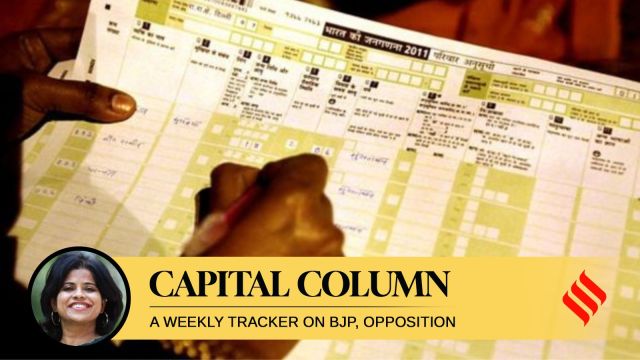
The BJP may have taken the Opposition by surprise by announcing enumeration of castes in the much-awaited Census exercise, but there is some disquiet in ranks of both parties over the measure.
While Congress leader Rahul Gandhi has been pushing for a caste census for some time now, the party was able to keep a lid on differences because the prospect of this seemed remote. Plus, it was seen as an effective tool to keep the BJP on the back foot.
With the announcement of a caste census by the Modi government, however, the equations have changed. And the first signs of this were evident at the Congress Working Committee meeting held to flesh out the party’s response to it.
According to sources, many leaders belonging to upper castes, spanning states from the North to the South, stayed away from the meeting as a token of protest. A leader said he stayed away not sure of whether a caste census was a good idea. There is some talk of the leaders coming together to make their case.
Another leader said there was a cautionary tale Gandhi should bear in mind. While V P Singh implemented the Mandal Commission, he said, OBCs never saw the Rajput leader as their leader.
The biggest apprehension of upper caste leaders is the diminishing of their importance if the new caste data shows that the influence they enjoy across spheres is hugely disproportionate to their numbers – which is expected to be the case. In Telangana and Bihar, the two states which have conducted caste surveys most recently, for example, non-backward castes – labelled ‘Other Castes’ in Telangana, and ‘Forward/General Category’ in Bihar – were estimated at around 15%.
While it is no secret that the backward classes together – including SCs, STs and OBCs (the latter to be counted in a caste census now) – far outnumber the upper castes, the data would be harder to deny when on paper. The OBCs are anyway a rising political power, with the Congress vying for catch-up with the BJP on this.
When it comes to power, caste calculations come into play in everything from candidate selection, to berths in Cabinet formation, to positions of influence in the organization. The BJP has an advantage over the Congress in this, in terms of both the size of the pie that it can share, as well as the fact that it already has OBCs
holding several top posts, including Narendra Modi as Prime Minister.
However, many leaders in the BJP cite reasons as to why the party may also run into rough weather. One is the position that BJP leaders have taken publicly in the past, including the affidavit filed by the government in the Supreme Court in 2021 ruling out holding a caste census that year, and underlining that any move on it
would be “a policy decision”.
Senior BJP leaders will try to explain the change in position as a reflection of the “ground realities”, as well as point to the party’s successful shedding of its image as a Brahmin-Baniya party to one accommodative of all castes. However, BJP leaders expect to face questions given the long-running narrative of the party of larger Hindu unity, with a call to rise above caste lines.
“You want us to talk about global leadership and AI, you raise slogans like ek hein to safe hein (We are safe if together), you want us to speak against sinister attempts to divide the country. And now, we have to justify a caste census!” a party leader from Uttar Pradesh said.
Another leader said that the upper castes, who already bear a grudge about being “marginalised” in the new polity, would not take kindly to further eclipsing of clout. Communities like the Reddys in Andhra Pradesh and Telangana, Thakurs or Rajputs in the Hindi heartlands, and Nairs in Kerala could be “enjoying more powers and rights than the strength of their communities in the political scene”, the leader pointed out.
Many in the BJP wished that the government held discussions and consultations before such announcements to bring its own cadres on the same page. They point to how the party had to withdraw three contentious farmer laws during its last term, having not anticipated the anger over it.
“Even on the Waqf (Amendment) Bill, we know that the changes will ultimately do good to the poor in the Muslim community. But both the party and government have failed to convince the minorities of this. It’s easier to convince people if you try before making the law. Pehle baat kariye, phir kanoon banayiye (First hold consultations, then make the law),” argued another leader.
Another leader feared that the Congress’s charge that the BJP was following its ideas may stick. “The BJP is expected to focus on economic empowerment, but the party’s announcements could be taken as following the social theories of the Leftists… borrowing ideas of the Left and the Congress,” he said.
However, a section in the party backs both the decision and the timing, saying that the announcement coming a few months ahead of the Bihar elections gives the BJP enough time to counter any trepidation on the ground. According to them, it could also help rally more backward Hindu votes behind the BJP.
“The census could end up showing that some dominant OBC groups like Yadavs, Kurmis and Jats (nurtured by regional parties) are cornering the quota benefits…For example, Yadavs are 14% in Bihar (as shown by the recent caste survey). But more than 21% of the MLAs in the state Assembly belong to the community,” a leader said.